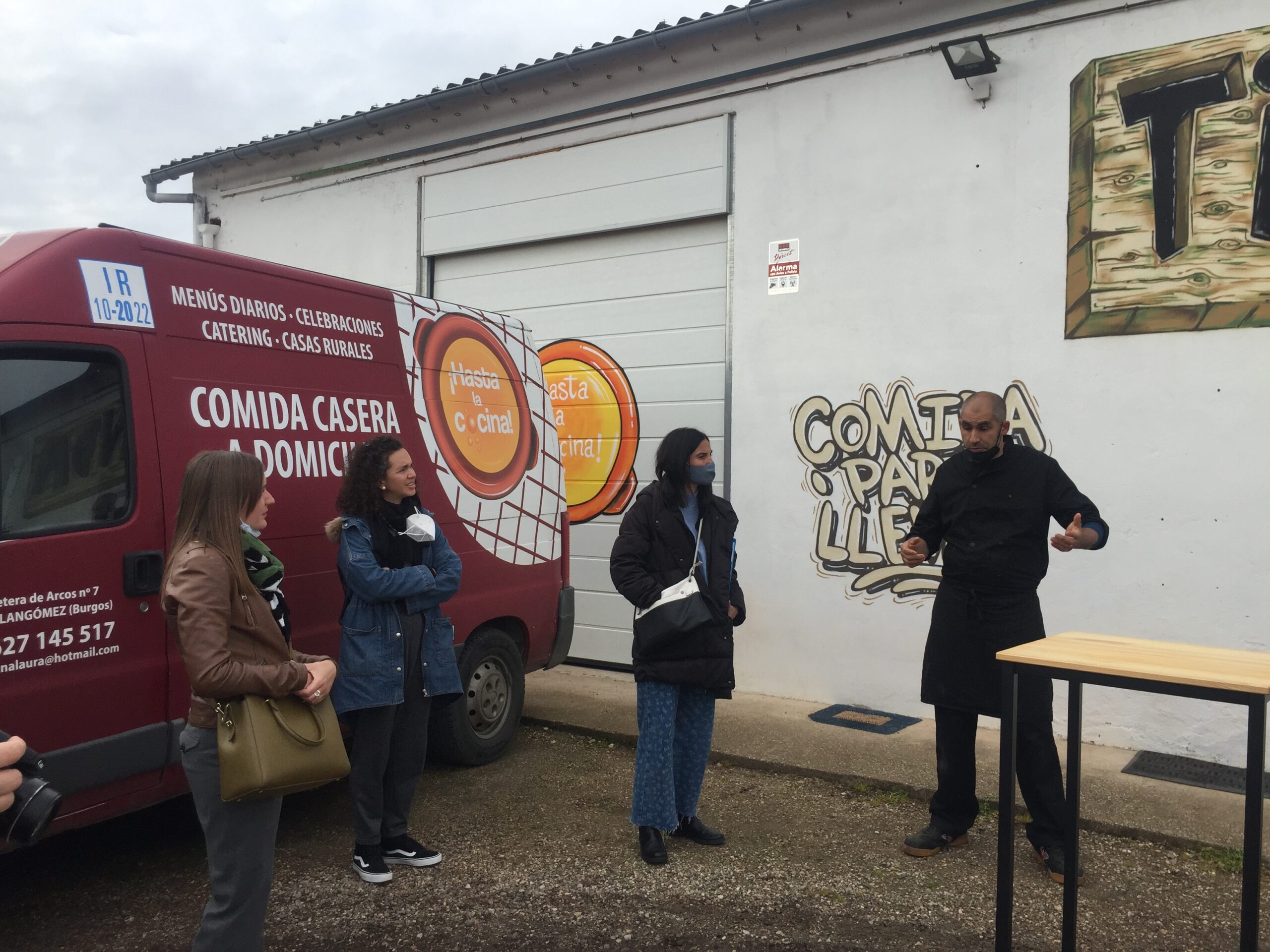Funding mobile services in ageing villages to improve quality of life for older adults
Population ageing is expected to accelerate in many rural and mountainous areas in the coming decades. This trend poses challenges for the quality of life of older people, particularly in terms of ensuring the availability of goods and services adapted to their needs. As part of the SILVER SMEs project, the province of Burgos (Spain) has promoted the development of mobile services for the most ageing rural communities.
The challenge of ageing in rural mountain areas
Spain is one of the European countries most affected by population ageing. By 2050, the ageing trend is expected to accelerate, sometimes combined with the remoteness of some villages and the out-migration of young people. The province of Burgos in Spain is no exception. Today, 23% of the population of the province of Burgos is over 65. This share rises to 27% in the province’s rural areas.
The significant increase in the proportion of the over-65s in the local population calls for consideration of how to maintain their quality of life and adapt the goods and services available to them. The service sector is the most developed in the rural areas of the province of Burgos, accounting for 65% of economic activity, far ahead of industry (13%) or agriculture (12%). However, few of these services are adapted to the specific needs of older people.
This has a significant impact on their quality of life and may even drive some older people to move to more urbanised areas that offer more services adapted to their needs. In order to address this problem, SODEBUR – the Society for the development of the province of Burgos – has undertaken to support the development of mobile services aimed primarily at older people.
A call for funding to encourage SMEs to develop mobile services for older people
As part of the Interreg Europe SILVER SMEs project, SODEBUR intended to develop the Silver Economy in rural areas. The Silver Economy refers to all goods and services intended for older people. It is a sector that is increasingly developed in urban areas, but is still in its early stages in rural Europe. In the province of Burgos, a study carried out showed that only 20% of economic actors were familiar with the term Silver Economy, although there was a strong interest in engaging in this sector.
To encourage companies in doing so, SODEBUR launched a call for funding for local businesses. The aim of the call was to promote the marketing of new mobile goods and services useful for senior citizens in the rural communities of this mountainous province.
Eligible services included home deliveries, home care, maintenance services, socio-cultural services, etc. Eligible companies had to provide such itinerant services in at least 4 rural municipalities in the province. One of the other selection criteria for the call was the percentage of older people living in the municipalities concerned.
The call for funding, launched by SODEBUR between June and July 2022, had a total budget of 150,000€. Successful companies could receive two types of funding:
- 3,000€ or 6,000€ if no major investment was needed to develop the new offer (depending on the number of municipality where the service is offered).
- Maximum of 15,000€ if the company required a significant investment.

30 Silver Economy companies funded in rural areas
In December 2022, 30 companies were selected as beneficiaries of the funding call. The call was popular with businesses, with 79 applicants (of which 58 were eligible).
Of the 30 selected companies, 28 are developing new services and 2 are receiving investment support. These businesses include mobile food delivery services in villages, such as mobile bakeries and butchers. One of the selected companies is Hasta la Cocina, a family-run SME that prepares healthy home-cooked meals and delivers them to older people in the province. They operate in 13 municipalities.
The 2022 call for funding was so successful that the General Committee of SODEBUR approved last 24th March a new budget line for 2023 with a budget more than doubled (340,000€).